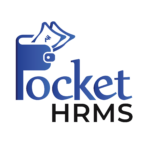
How does 21 CFR impact the HR Department in Pharma Manufacturing?
Table of Contents

Reading Time: 3 minutes
In the highly regulated world of pharmaceutical manufacturing, a single misstep can lead to catastrophic consequences, from product recalls to severe legal penalties. While regulations like 21 CFR (Code of Federal Regulations) are often associated with quality control and production floors, their influence extends deeply into the Human Resources (HR) department.
For pharma manufacturing companies in India, navigating these rules isn’t just about operational compliance; it’s about embedding a culture of quality and accountability from the ground up, starting with their people.
What is 21 CFR, and how does it pertain to HR?
21 CFR is a set of regulations issued by the U.S. Food and Drug Administration (FDA) that governs the production, testing, and distribution of food, drugs, and medical devices in the United States of America. While Indian pharma companies may not directly sell in the U.S., many manufacture and export medicines for them, making adherence to these global standards a business imperative.
For the Indian HR, the most relevant sections are 21 CFR Part 211 (Current Good Manufacturing Practice) and 21 CFR Part 11 (Electronic Records and Electronic Signatures). These regulations don’t just dictate how products are made; they set strict standards for the people who make them.
1. Personnel Qualifications and Training
21 CFR Part 211 mandates that every person involved in the manufacturing process must have the necessary education, training, and experience. This places the burden on HR to meticulously document and verify qualifications, and to ensure ongoing, continuous training for all employees in Current Good Manufacturing Practices (CGMP).
2. Data Integrity and Security
21 CFR Part 11 requires that electronic records and signatures be considered trustworthy and reliable, equivalent to paper records and handwritten signatures. This has a profound impact on HR’s digital systems, including attendance, payroll, and performance management. Any system that creates, modifies, or stores a record related to an FDA-regulated process must have secure, time-stamped audit trails, user access controls, and a robust validation process.
3. The Added Burden on Indian HRs
For Indian HR teams in pharma manufacturing, these regulations create significant overhead. Managing paper-based records is cumbersome and prone to error, and manual processes for tracking training and qualifications can quickly become unmanageable as the workforce grows. The need for accurate data with integrity means that even a small mistake in an attendance log or a missed training session can be flagged during an audit, leading to a regulatory warning or worse.
Furthermore, maintaining a compliant system that handles electronic records requires a high level of technical expertise. The overhead of manual compliance tasks can divert HR’s focus from strategic initiatives like employee engagement, talent development, and succession planning.
How does Pocket HRMS ease the Compliance Burden?
This is where a modern, automated HRMS (Human Resource Management Software) like Pocket HRMS becomes a critical asset. By offloading the additional compliance overhead, it allows Indian HR professionals to focus on what matters most: their people.
Pocket HRMS is designed to meet the rigorous demands of compliance for the pharma industry. This AI-powered platform can automate a multitude of tasks that are essential for 21 CFR compliance:
➔ Automated Attendance and Leave Management
With features like biometric authentication and geo-tagging, Pocket HRMS ensures accurate and tamper-proof attendance records, creating a verifiable audit trail that aligns with 21 CFR Part 11 requirements.
➔ Centralized Employee Data
The platform serves as a single, secure repository for all employee information, including qualifications, certifications, and training history. This makes it easy for HR to pull up any record instantly during an audit.
➔ Training and Performance Tracking
Pocket HRMS simplifies the management of mandatory training sessions by automating reminders and tracking completion status. It ensures that every employee receives and completes their required CGMP training, and the system logs this data.
Conclusion
By embracing a solution like Pocket HRMS, Indian pharma manufacturing companies can transform a complex regulatory challenge into a streamlined, efficient process. It’s not just about avoiding penalties; it’s about building a foundation of operational excellence that drives growth and ensures patient safety.






